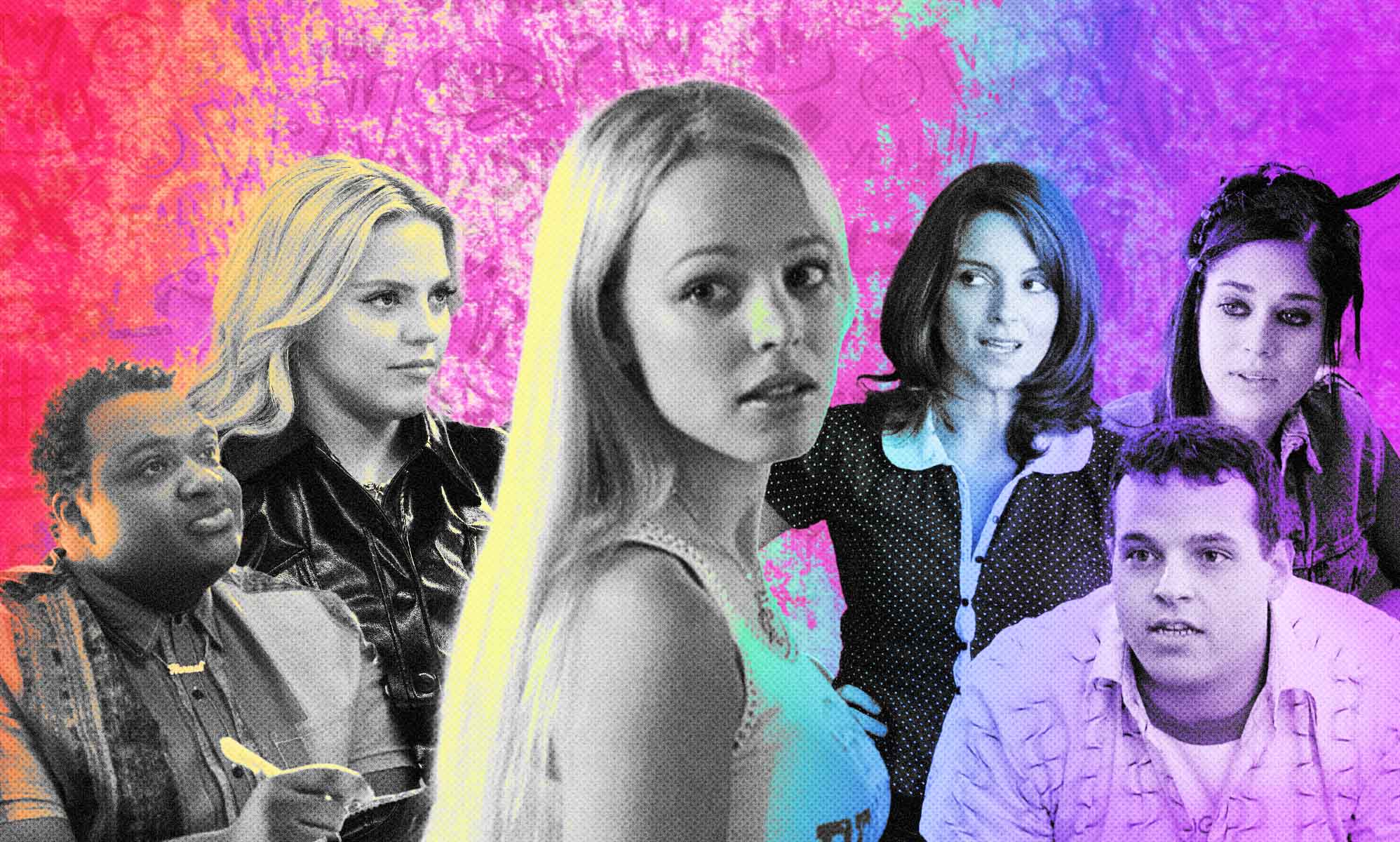Twenty two-year-old, New Brunswick-based Drew Hudson was six the first time he watched 2004’s pop culture phenomenon Mean Girls.
When he’d stay at his mum’s apartment, her neighbour would always put on movies that he “definitely wasn’t supposed to watch, because I was way too young,” he tells PinkNews. Out of all of them, Mean Girls stuck.
As he got older, his obsession only grew. While working at a cinema, it was written across his nametag that his favourite film was Mean Girls. A still from the film occupies his computer background. His phone lock screen is a drawing he did of Amanda Seyfried’s character Karen; Lindsay Lohan is his email account profile picture.
Twenty years after the film’s release, and its presence in popular culture hasn’t waned. The 2018 Broadway adaptation was nominated for 12 Tony awards; Ariana Grande used the film as a basis for her “Thank U Next” video. You’re never too far from someone reciting one of its endlessly quotable lines. Now, a film adaptation of the musical is in cinemas.
For a generation of queer people who entered the jungle that is high school in the mid 2000s, Mean Girls and its characters resonated deeply, depicting outsiders fighting for survival and newcomers finding their tribe. Most notably, for gay men, Daniel Franzese’s “too gay to function” Damian was an awakening.
“Damian, as a queer person, was probably the first instance of a gay character I ever saw on screen [where I was] explicitly told, ‘this guy’s gay’,” Drew says.
When Drew would discuss the film with his friends at school, they would “typecast” him as Damian. “I was in the closet. I was like, ‘I don’t know if I like that. That’s not something that I want to aspire to be,’” he admits.
“But since coming out and embracing that side of myself, I wouldn’t want to be any other character other than Damian.
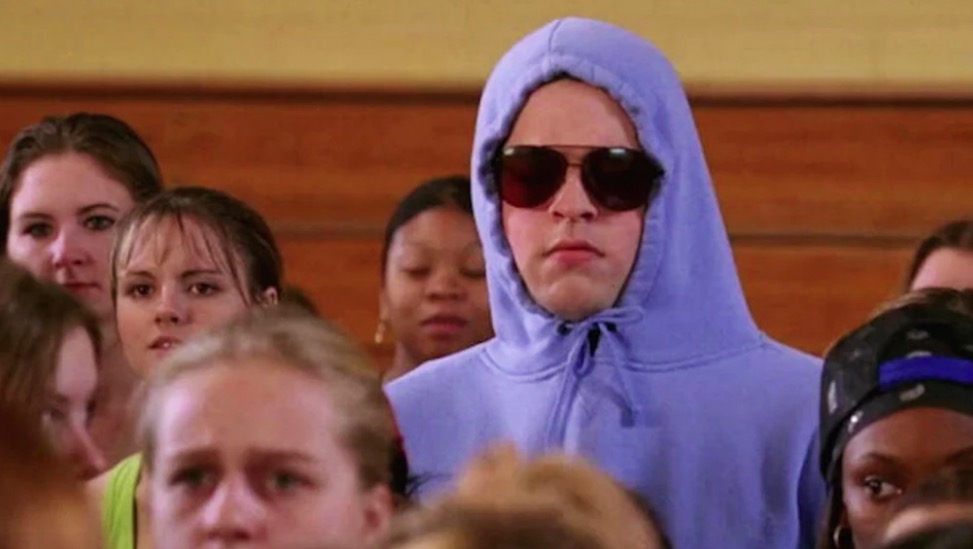
“I’m a bigger guy. Damian’s also a bigger guy. I was like, ‘OK, I can definitely see myself in him’,” he adds. “I feel like seeing him [when I was] so young allowed me to be who I am.”
Ian Wright, a US-based fan, saw Mean Girls for the first time while he was a senior in high school and became “instantly obsessed”.
“The number of times I quoted ‘boo, you whore!,’ when I was a freshman in college … way too many,” he laughs.
Yet for Ian, it was the “gay, overweight, fierce and fearless” Damian who would come to mean more than the witty one liners. Particularly, Damian’s scene at the talent show, where he sings Christina Aguilera’s “Beautiful”. When a heckler lobs a shoe at him mid-performance, he doesn’t hesitate to chuck it right back.
“I love that he was not afraid to be himself,” Ian says. “In queer cinema, a lot of times we didn’t see people with different body types in in films, we didn’t see a lot of gay people at all, but seeing a guy who was friends with all the girls, who was funny, and kind of bitchy, it meant a lot to me.”
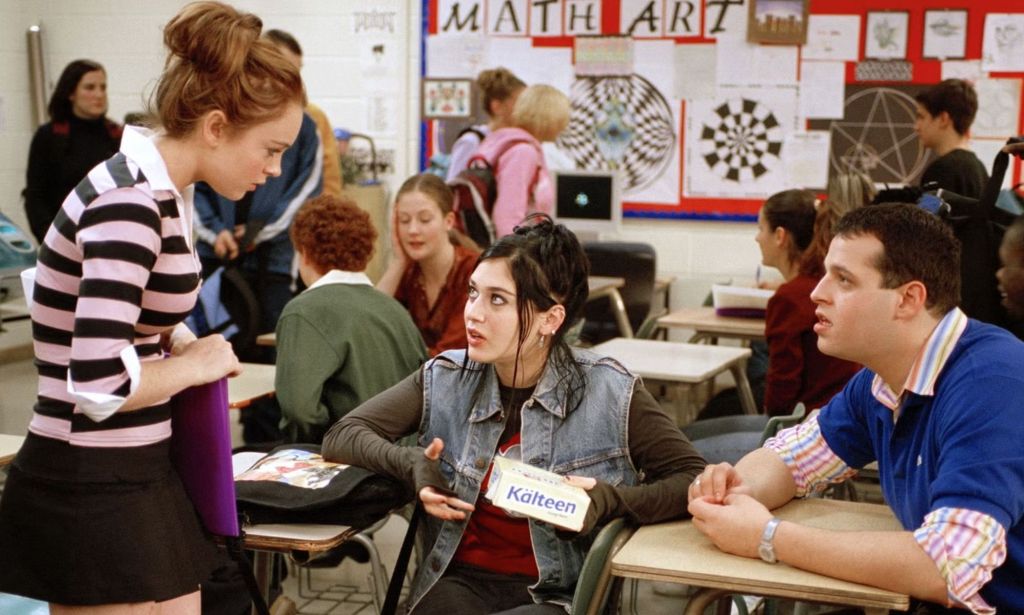
While queer stories were practically non-existent in 2004, those that did make waves were largely tied to homophobia, or the trauma of coming out, like 2005’s Brokeback Mountain. In that sense, Damian broke the mould.
“He doesn’t really take any s**t from anybody,” Drew says. “He knows who he is, and that’s never a thing that is a big question in the movie.”
In the 20 years since the film hit our screens, Damian’s actor Daniel Franzese has been made aware time and again just how much character marked a turning point for queer representation.
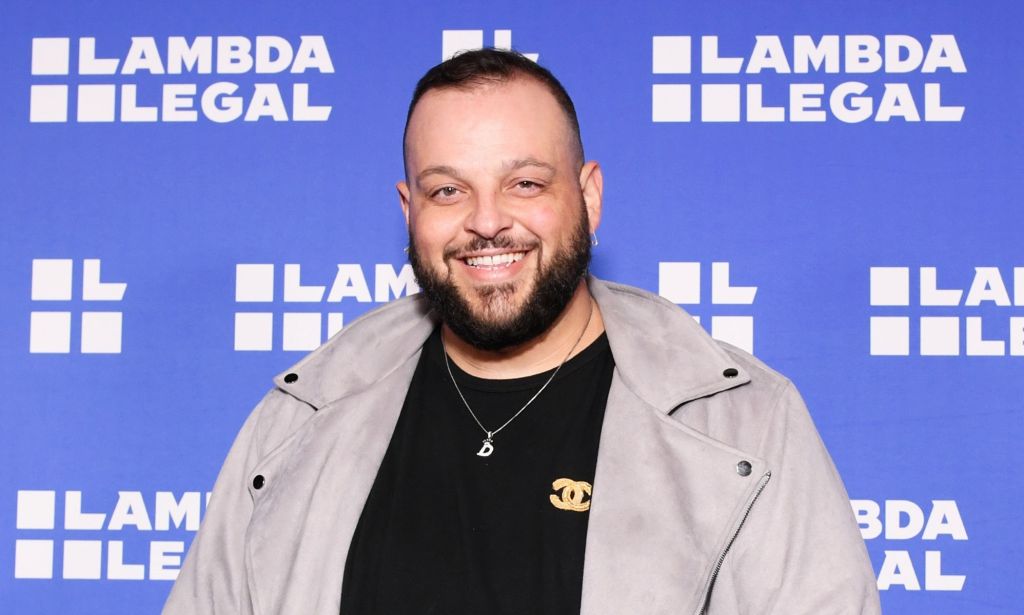
“Growing up as a young performer who loved pop culture, there wasn’t a lot of representation of [queer] people unless they were ridiculed or used as a punchline,” the 45-year-old actor tells PinkNews.
“Damian was able to walk down the hallway, and not be thrown in a locker or have his head down to the toilet. [He was] able to unequivocally be himself, and I think that was for a lot of queer people an important thing to see.
“As a person who has unknowingly been a beacon of hope for a lot of people, by just showing up, I realised how much representation matters.”
While Damian formed one part of the awakening for many a gay man, Aaron Samuels – Cady and Regina’s love interest, played by gay actor Jonathan Bennett – certainly had a role, too.
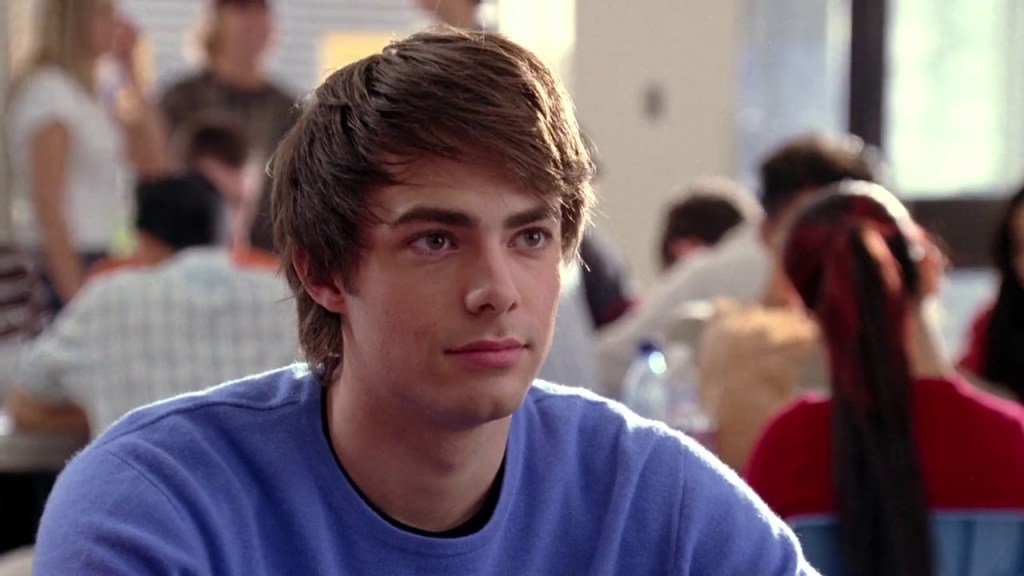
“If anybody was a gay awakening, I would say Aaron Samuels was,” laughs Philadelphia-based theatre and film writer Peter Fenton, “in the sense that I’m not sure if I want to be him or be with him, and I think the answer to that is just: ‘Yes’.”
Of course, Mean Girls also became a training ground for young queer women, too. Full time artsy goth girl and rumoured lesbian Janis Ian (Lizzy Caplan) – who is portrayed as an out lesbian in the stage adaptation and its new film counterpart – was claimed as a member of the community long before her sexuality was confirmed by writer Tina Fey.
Yet for an often unheard group of millennial lesbians, it was Tina Fey herself – aka Ms Norbury – who opened the sapphic floodgates.
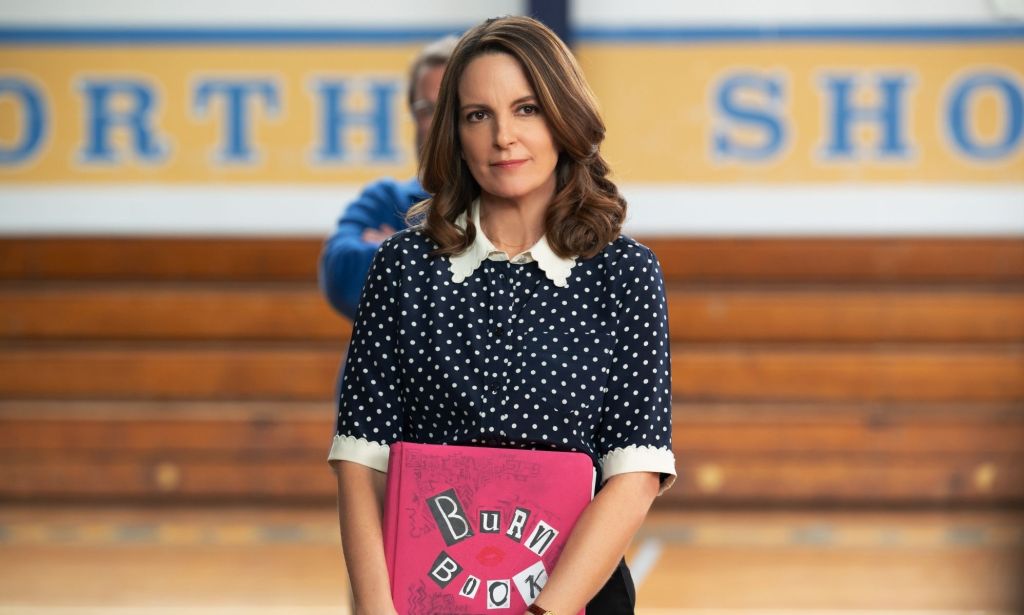
“I have a tattoo of Tina Fey,” says Mean Girls super stan Maria, who lives in Pennsylvania.
She first saw the 2004 film when she was 11 years old, and was immediately drawn to the soft-hearted teacher and her motherly energy
“That love has never gone anywhere,” Maria says. She’s seen the new musical version twice in the past week. “When I saw her on screen as Ms Norbury, I was like: ‘Yep, it’s still there!’”
Ms Norbury is seen continually pushing Cady (Lindsay Lohan, in the original film) to focus on her studies, and be the best version of herself. Even when Cady nearly ruins Ms Norbury’s career with false accusations that she’s a “drug pusher”, she’s forgiving, and remains a protective and caring force in Cady’s life.
In the same way that Matilda’s angelic Miss Honey has become a sapphic icon, Maria sees Ms Norbury in that guardian role.
“Growing up gay, you never fully feel safe until you find your own niche [group],” Maria reflects.
“If you have somebody who gives you a moment of safety when you never get that feeling ever anywhere else, you become very attached to it very quickly.”
Then, there’s head b***h in charge, Regina George. How do I even begin to explain Regina George? “Pardon my French, but Regina George does not give a f**k,” says Peter.
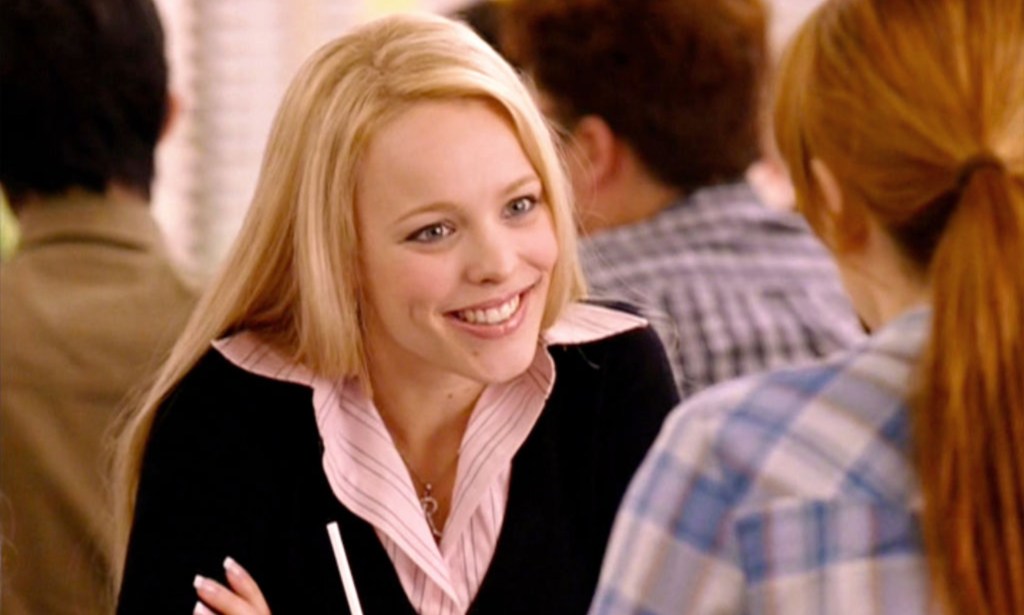
“We’re experiencing Regina’s influence 20 years later. I have to imagine there has been some level of influence on queer people in general trying to emulate this power that Regina has.”
Peter feels that, much like Cady is, queer people are enticed by Regina’s level of authority, as a community that has historically not had much power themselves. The idea of upending the status quo, much like Regina did when she leaked the contents of the burn book, is alluring.
“This idea of going in and wreaking havoc on the mainstream, whatever that is, and watching it crumble … I think that that is something that a lot of queer people really relate to,” he explains.
Drew, however, has another way of putting it. “I think part of Regina’s allure is just how c**ty she is,” he laughs.
“As a queer person, there’s always celebrities you idolise. In a way, I feel like Regina is like Judy Garland. She had this untouchableness about her that’s so queer somehow.”
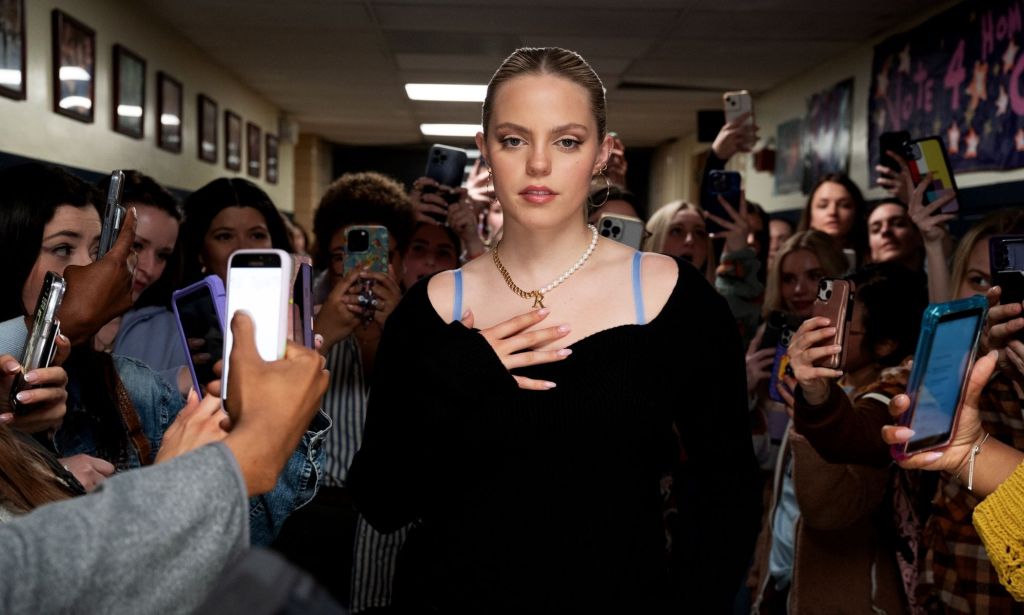
Yes, there are certain queer people, particularly gay men, who are captivated by her social status, her flawless looks and sassy takedowns. There’s also the fact she’s hot, too.
“Gay men want to be Regina George. The women, they want to be with Regina George,” declares Maria.
“Women are just like, ‘oh my God, she’s gorgeous, she’s absolutely stunning’. On top of that, she is definitely someone that it would be a challenge to be with. If there’s one thing that lesbians love, it’s a good challenge.”
From first queer crushes, to Damian’s no-f**ks-given attitude and Cady’s journey as an ostracised outsider, the original Mean Girls is a formative piece of LGBTQ+ entertainment. In the 2024 musical film, that legacy continues.
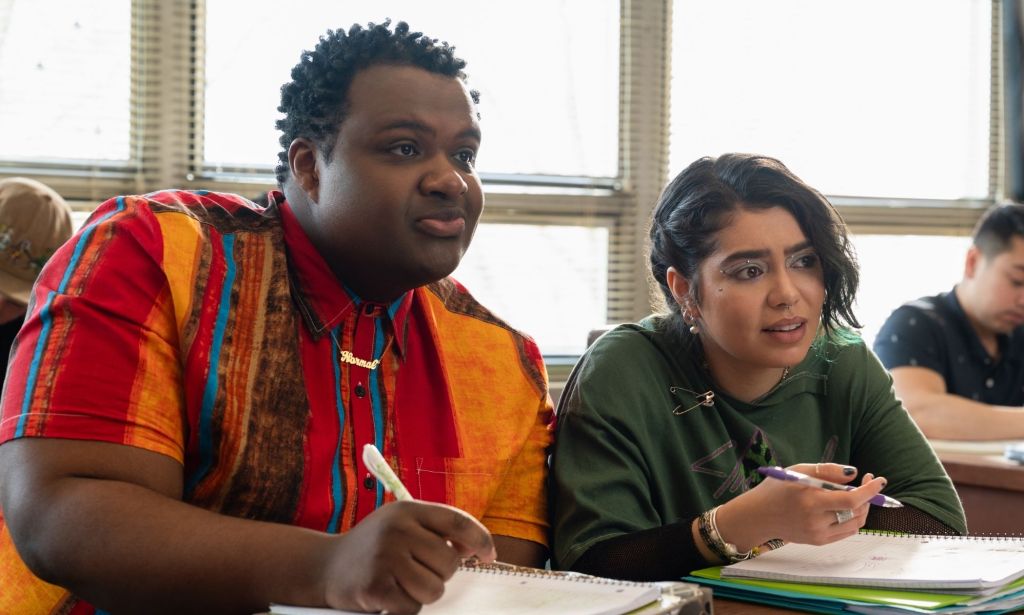
Reneé Rapp, an established queer star, is Regina George. Jaquel Spivey, a queer, Black actor, takes on the role of Damian. Janis, played by bisexual star Auliʻi Cravalho, is canonically part of the community.
“In the year 2024,” Peter reflects, “we are starting to see more backlash towards queer people existing, especially trans people in the States. I know that in the UK, it’s not much better.
“It’s really nice to see that such a mainstream piece of pop culture is aligning itself with the queer community even more so than it was before.”
Mean Girls is out in cinemas now.
